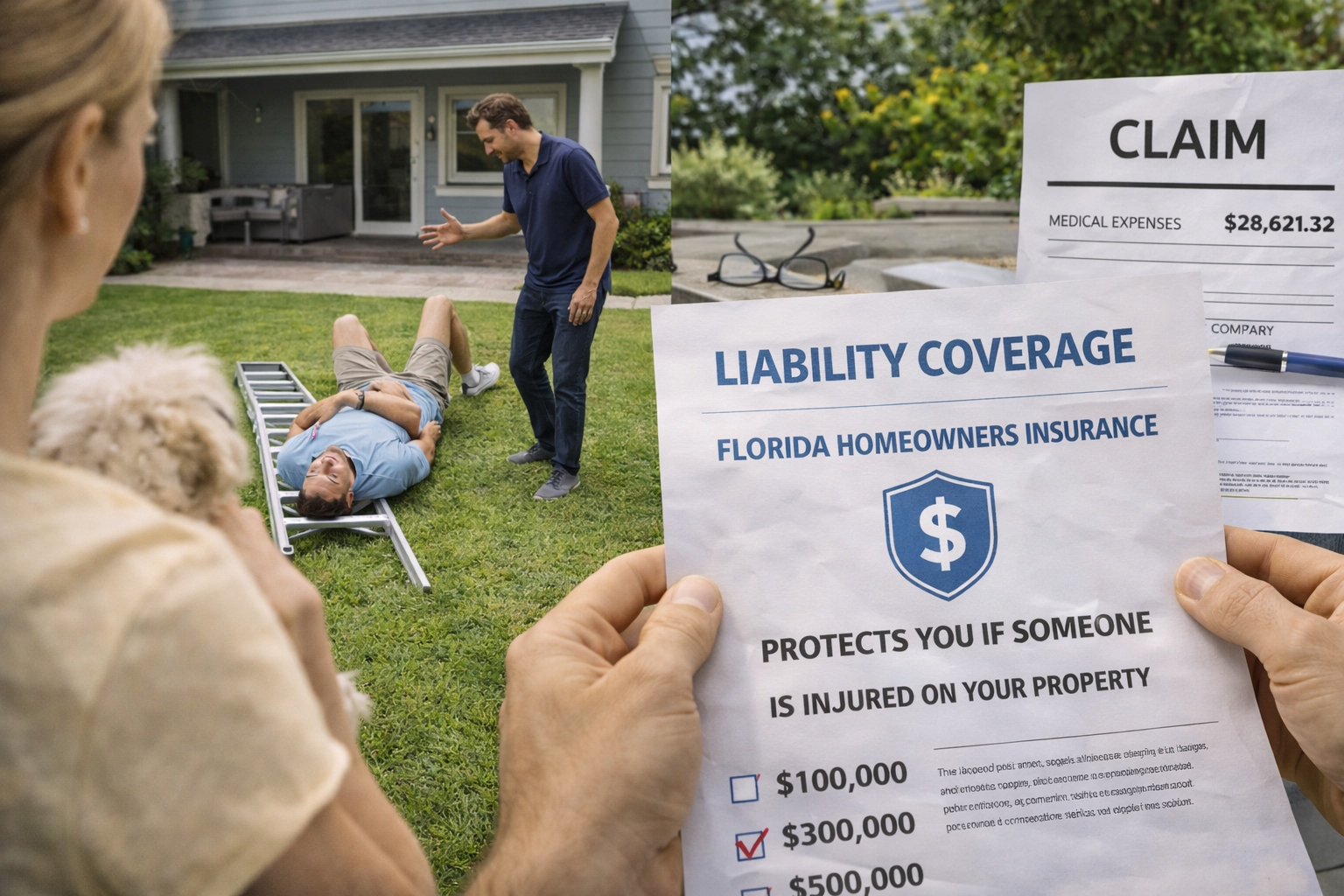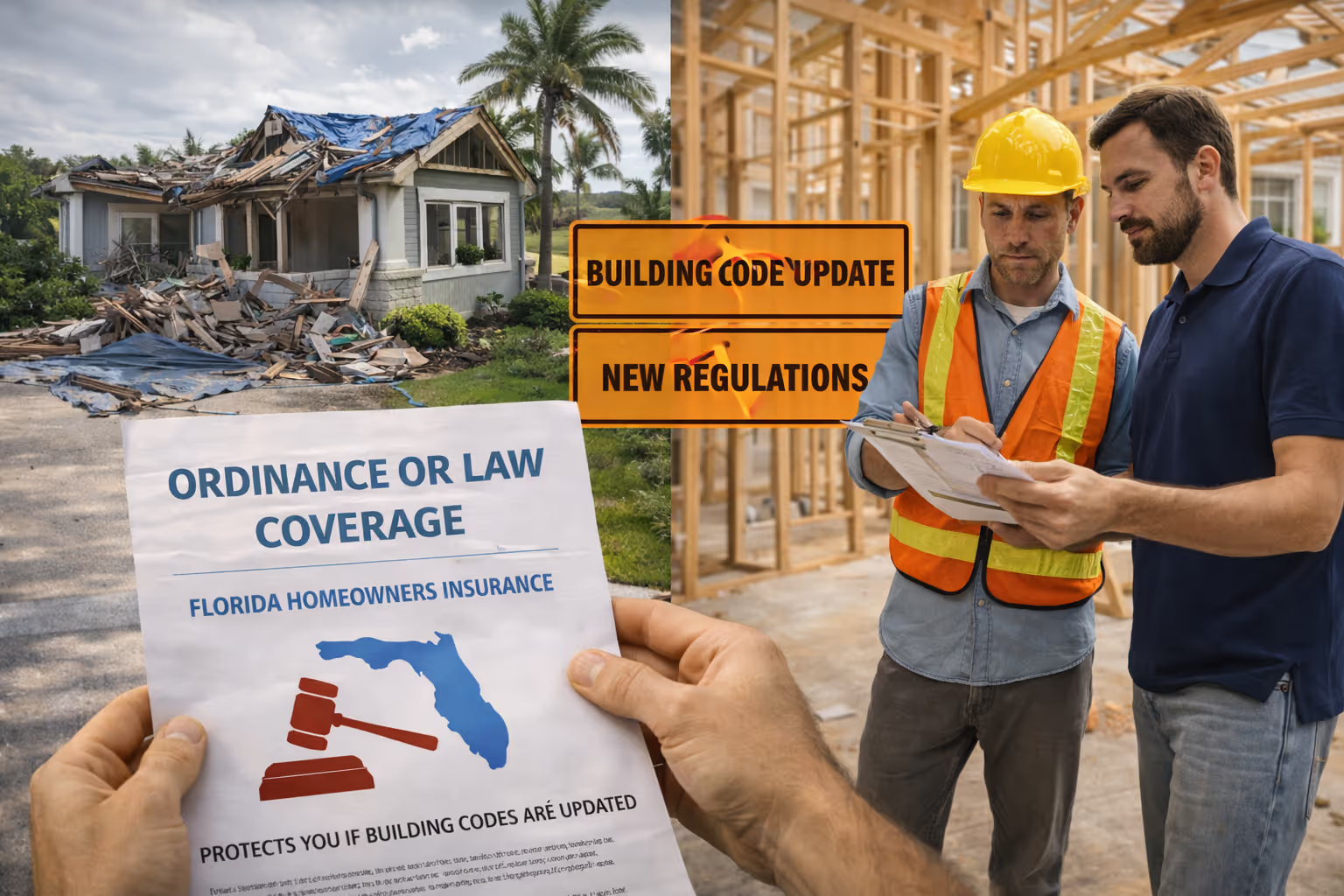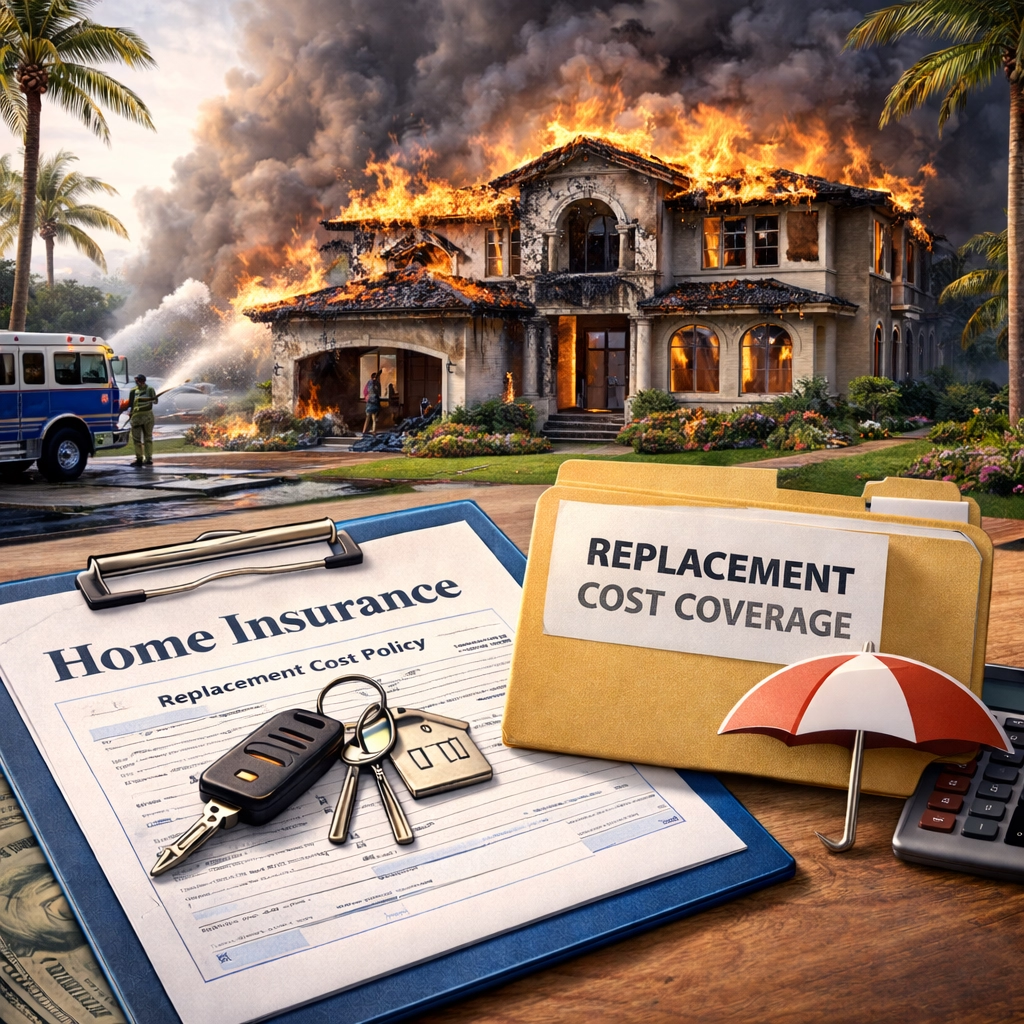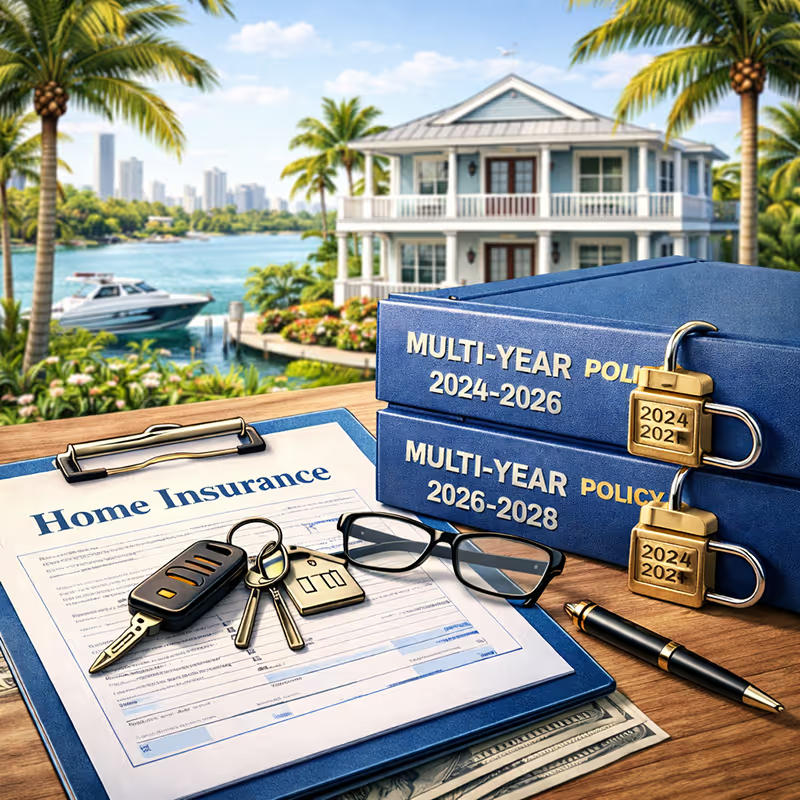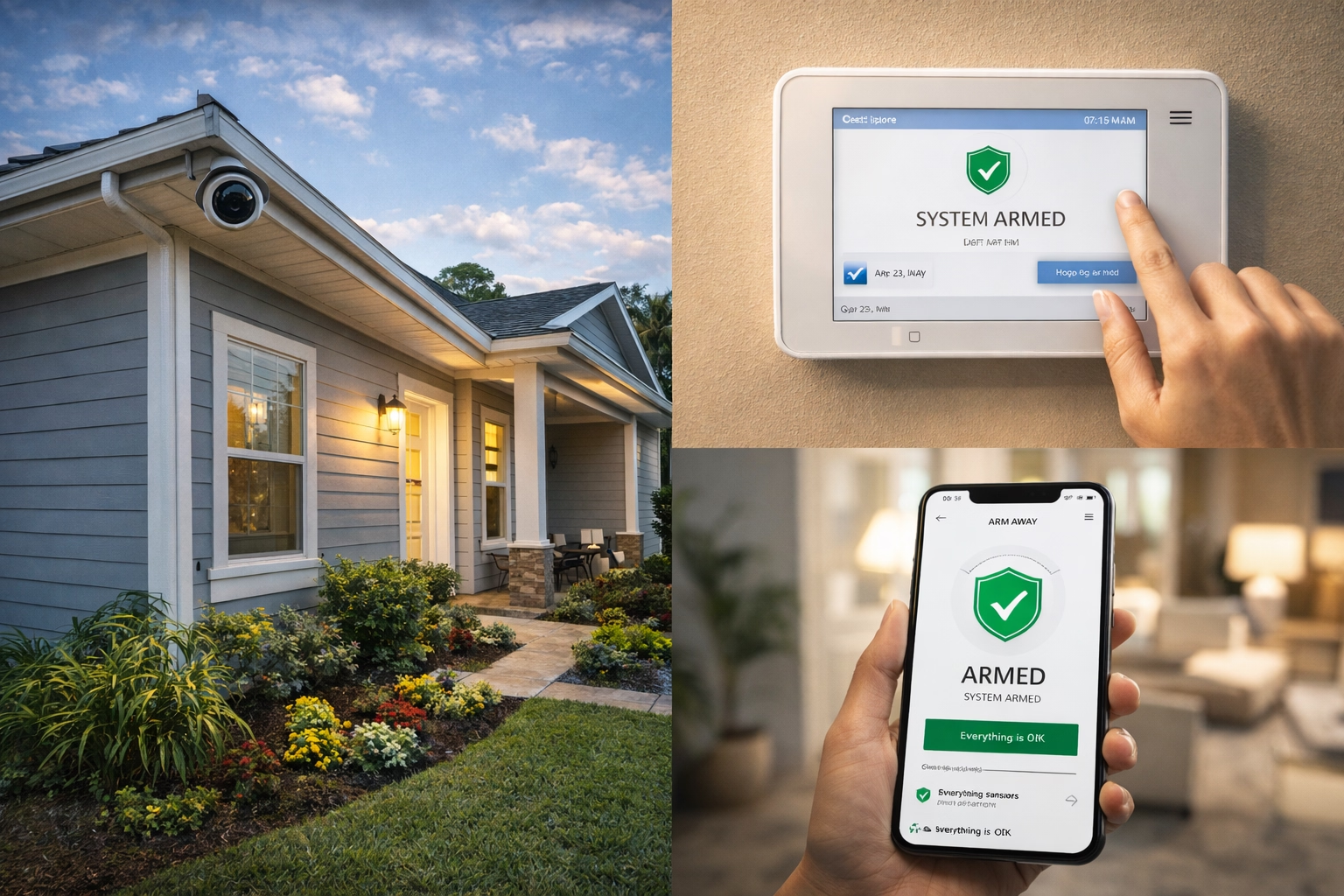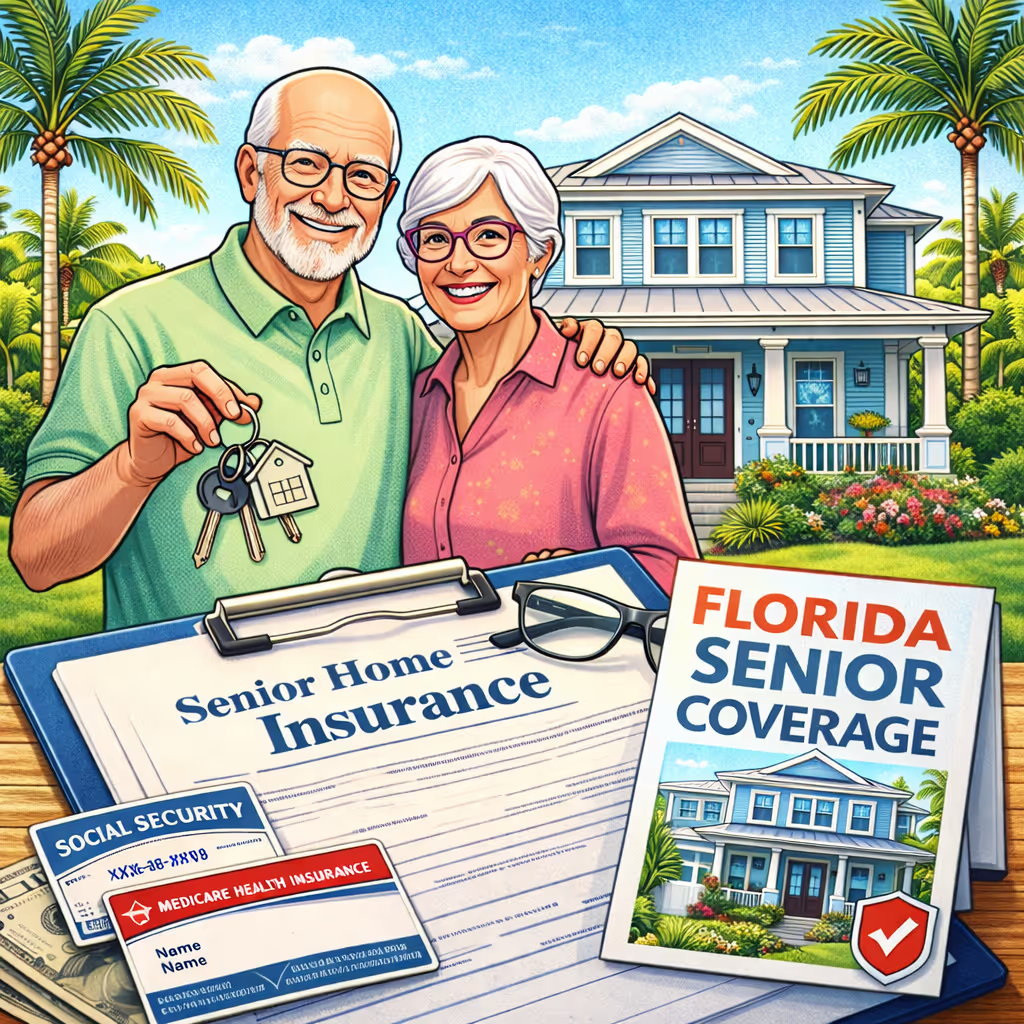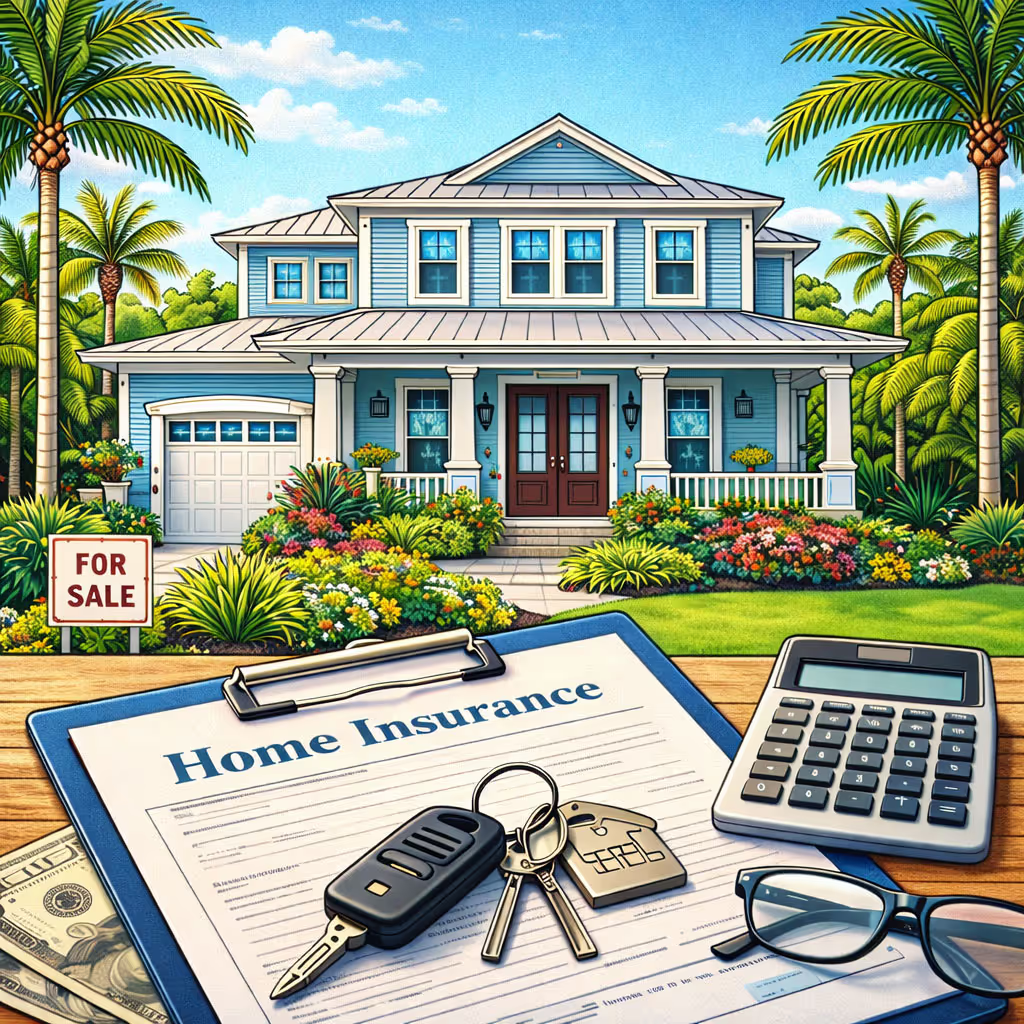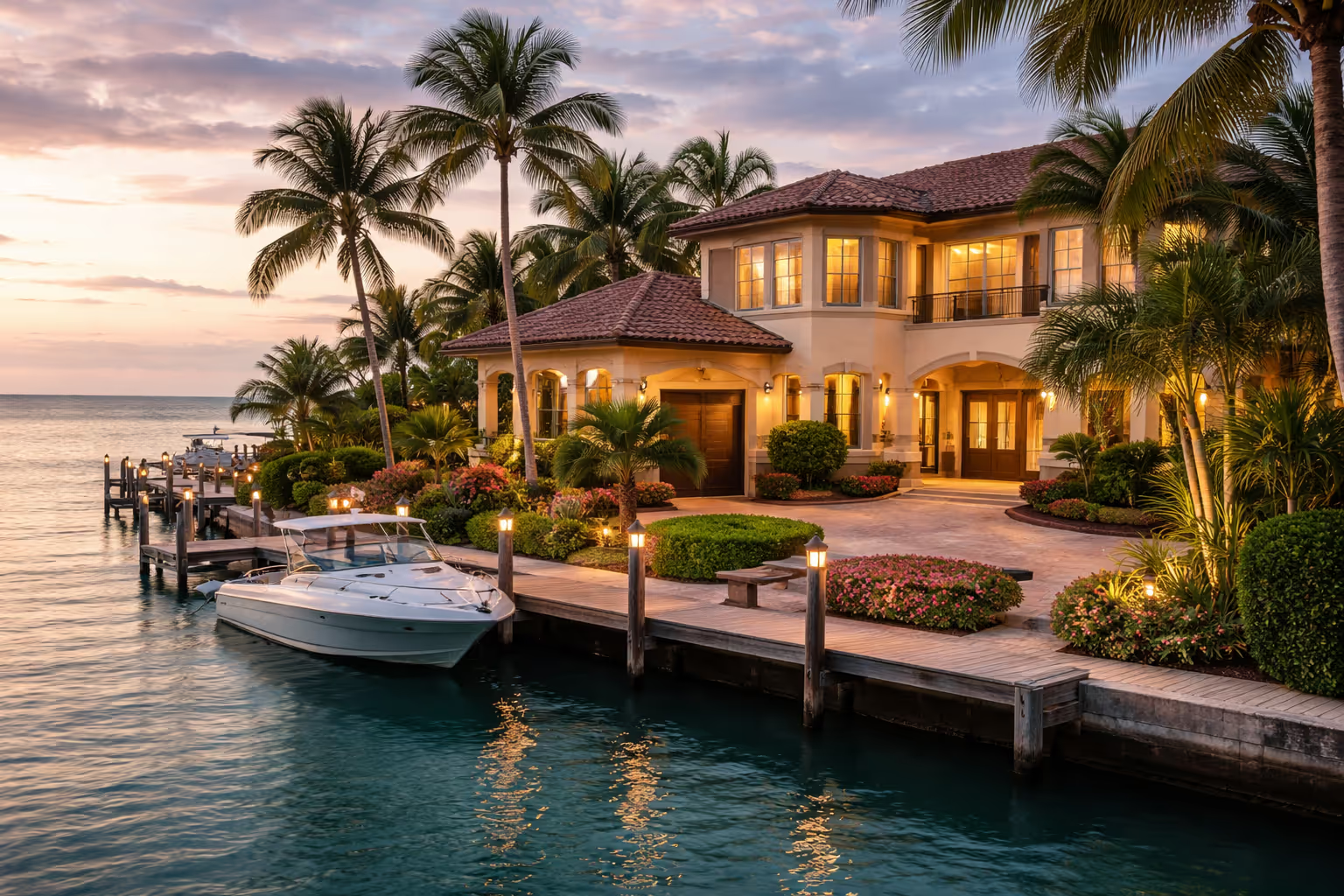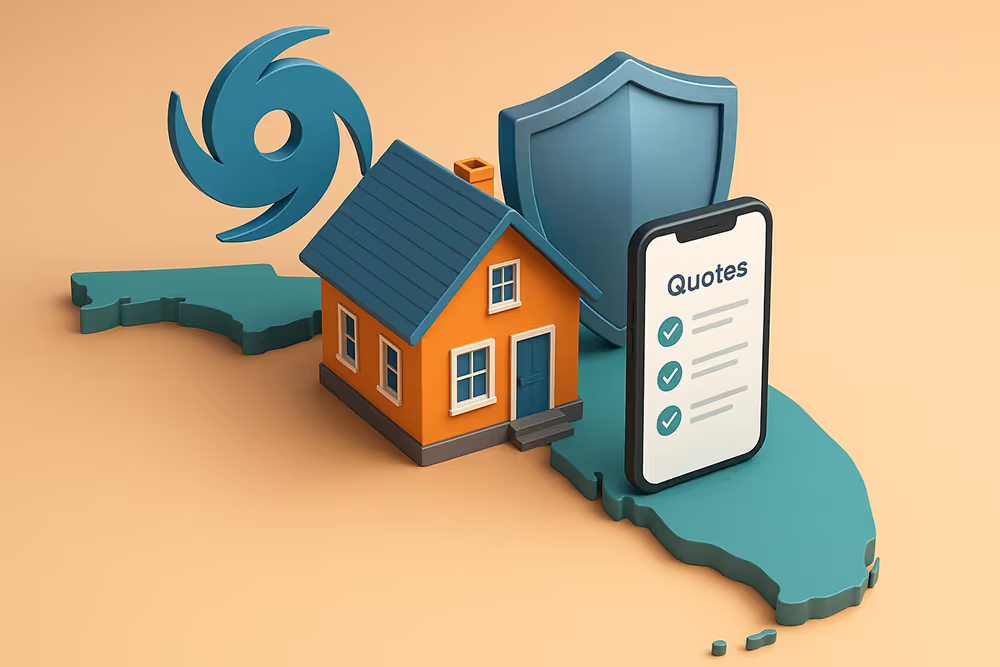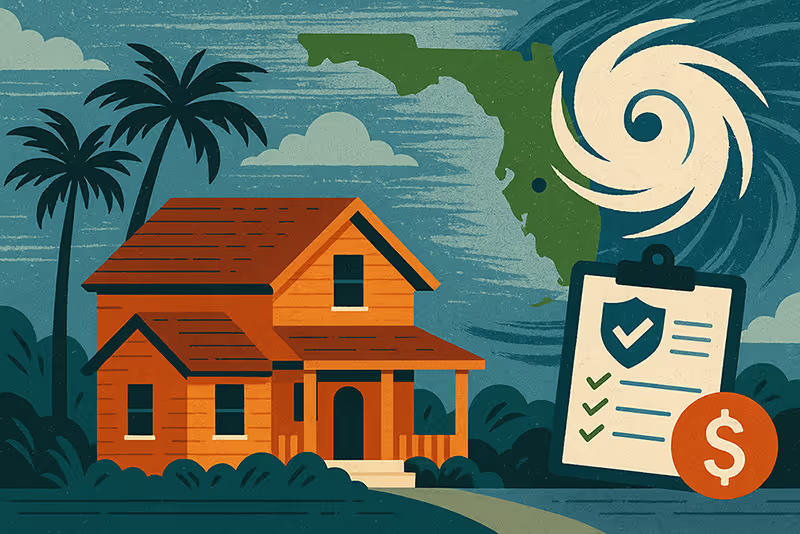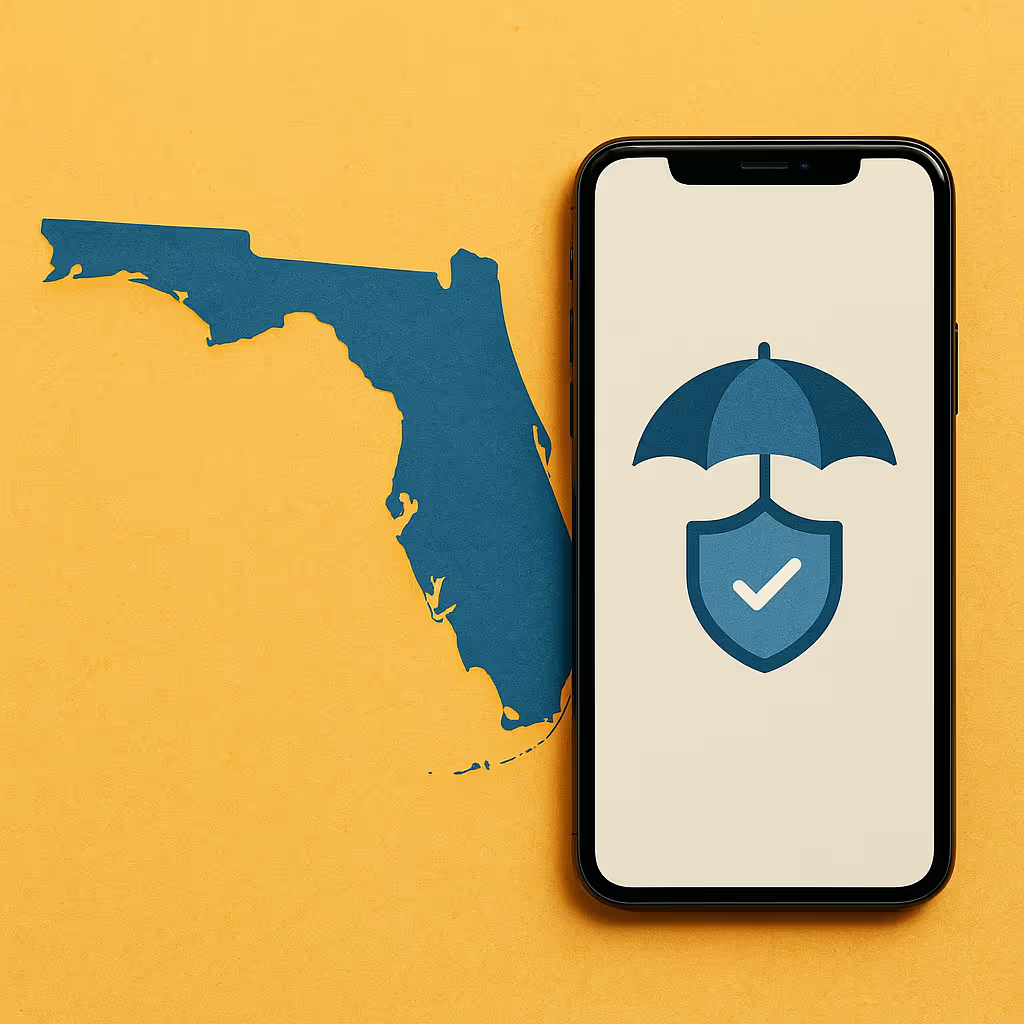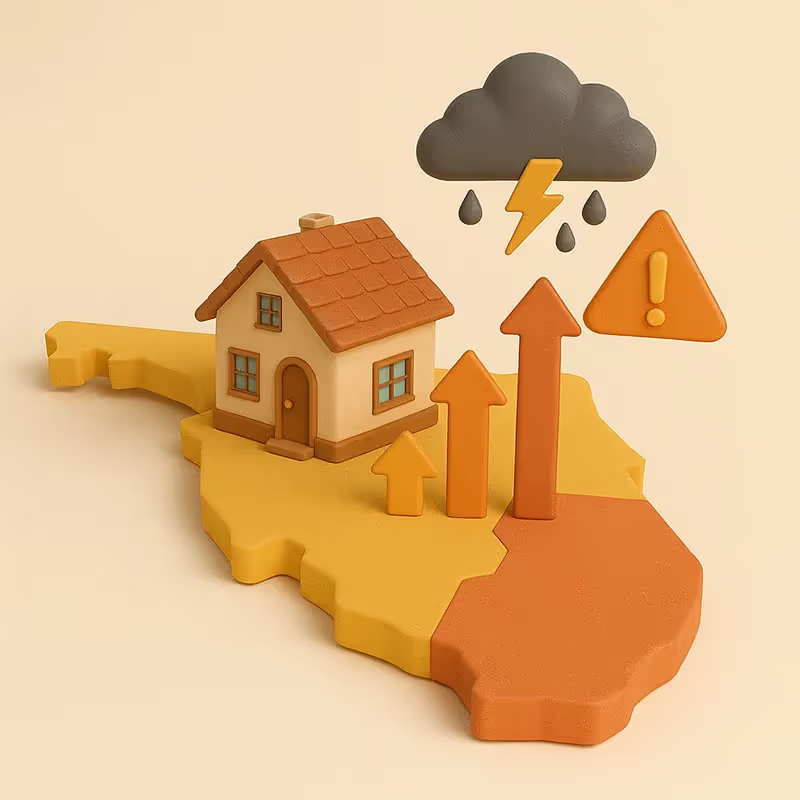Insuring Florida Coastal Homes: Essential Coverages & Savings Tips

Home insurance for Florida coastal properties must address higher risks from hurricanes, windstorms, and flooding. Key coverage includes windstorm protection, separate flood insurance, and replacement cost for rebuilding.
Coastal homeowners can lower premiums through wind mitigation upgrades, newer roofs, and policy bundling, but should watch for high deductibles and excluded perils in the fine print.
Florida’s coastlines are beautiful, but they come with a catch. If you own a home near the water, especially along the Atlantic or Gulf coasts, you’ve probably noticed insurance isn’t just more expensive. It’s more complicated.
There’s a reason for that. Carriers see risk, while homeowners see paradise. So let’s untangle what matters most when insuring coastal homes in Florida, and how to choose wisely without losing your mind (or your money).
Why coastal properties face unique insurance challenges
Before we dig into carriers or coverage options, let’s address the elephant in the room: storms.
- Hurricanes and windstorms are the big-ticket threats.
- Flood risk isn't covered by standard homeowners policies.
- High repair costs near the coast drive premiums up.
Living close to the ocean also means salt air corrosion, slower emergency response times after major storms, and often tighter building code requirements, all of which shape how insurers price (or decline) your policy.
Worth noting: some insurers simply don’t write new policies within certain ZIP codes anymore. And even if they do? There’s often a hefty windstorm deductible waiting in the fine print.
What does a good coastal policy actually cover?
Let’s keep this practical. A good Florida coastal home insurance policy should include:
- Windstorm coverage: Either built-in or purchased separately.
- Flood protection: Usually via a separate NFIP policy or private flood insurer.
- Replacement cost coverage: Not just actual cash value (which subtracts depreciation).
- Extended dwelling coverage: Rebuild costs often outpace estimates after a disaster.
- Loss of use: If your home’s unlivable, this pays for temporary housing.
And (this part’s overlooked) ordinance or law coverage. Local codes may require updates when rebuilding, even if the damage was to older, grandfathered parts of your home.
Florida carriers offering coastal home coverage
Not all insurers are equipped (or willing) to underwrite coastal risk. That said, here are a few providers we’ve already reviewed who do write for coastal Florida homeowners:
- Citizens Property Insurance: The insurer of last resort. If no one else will cover you, Citizens often will. It’s not always cheap, and coverage limits can be strict, but it’s an essential safety net.
- Slide Insurance: Relatively new, but growing fast. They’ve absorbed policies from other failed carriers and now serve many coastal regions.
- Universal Property & Casualty: One of the largest private insurers in Florida. Their policies can be competitive but sometimes require strict inspections or wind mitigation features.
- TypTap: Known for modern tech and a focus on flood insurance, but also offers bundled property coverage for certain coastal homes.
We’ve written more in-depth reviews for each Florida home insurance carrier here, if you’re comparing options.
How to lower your coastal insurance costs (without cutting corners)
There’s no magic trick, but there are a few strategies that can help.
- Wind mitigation inspections: Features like hurricane shutters, reinforced roofs, or impact windows may earn big discounts.
- Roof age: Insurers care deeply about your roof’s age and shape (hip vs. gable). A newer roof often reduces premiums.
- Bundle policies: Many Florida carriers will discount if you combine home and auto. It’s worth asking.
- Elevate the home: Especially in flood zones, homes on pilings or with elevated foundations may qualify for better flood rates.
- Work with an independent agency: A local expert (like us at Worth) can compare across multiple carriers for you.
Get started with a free quote tailored to your home. No pressure, just options.
What about flood insurance?
Here’s the hard truth: your standard home insurance policy doesn’t cover flood damage. Even if the flood came from a hurricane. You need a separate policy for that, either from the National Flood Insurance Program (NFIP) or a private carrier.
Private flood insurance is becoming more competitive in Florida. In fact, it’s often cheaper than NFIP and comes with higher limits and quicker underwriting.
If your property is in a high-risk flood zone (many coastal ones are), your mortgage lender may require flood insurance. But even if not? We still recommend it.
Check out our full guide to flood insurance in Florida.
Watch for these fine-print pitfalls
A few things we’ve seen trip up Florida coastal homeowners:
- Named-storm deductibles: These can be 2–10% of your home’s value.
- Excluded perils: Some carriers exclude sinkholes, mold, or water backup.
- Claim caps: Some policies cap how much they'll pay after one storm season.
- Assignment of benefits (AOB) clauses: These can complicate claims. Understand them.
We’re not saying all these are dealbreakers, but you should be aware of them before you sign.
Work with someone who knows Florida
Coastal insurance in Florida isn’t something you want to guess on. It’s nuanced. The wrong policy might leave you underinsured (or worse) stranded after a storm with no recourse.
At Worth Insurance, we specialize in helping Florida homeowners find protection that actually fits. If your property’s near the coast, it deserves thoughtful, personalized coverage (not a one-size-fits-all) quote generator.
Start your search with a custom home insurance quote, we’ll help you compare top carriers and figure out what makes sense for your location, budget, and home.
Frequently asked questions
What is coastal home insurance in Florida?
It’s a specialized policy designed for Florida homes near the ocean, hurricane‑prone areas, or high wind zones. It covers windstorms, named storms, and often includes flood insurance riders.
Do I need flood insurance in addition to homeowners coverage?
Yes. Standard home insurance does not cover flooding—even from hurricanes. You’ll need either a separate NFIP policy or private flood insurance.
How are windstorm or hurricane deductibles calculated?
In Florida, deductibles typically range from 1 % to 10 % of dwelling value and may be specific to named storms or hurricanes.
Can I save money with a wind mitigation inspection?
Absolutely. A licensed inspection on features like a hip roof, shutters, and hurricane straps can earn up to 45 % discounts under state guidelines.
What companies offer coastal home insurance in Florida?
Private insurers like Universal Property & Casualty, Slide Insurance, and TypTap offer coastal home policies, while Citizens Property Insurance acts as an insurer of last resort.
What factors affect premiums for coastal homes?
Your cost depends on roof age and shape, proximity to the coastline, mitigation features, and local building codes. Homes in high-risk flood zones cost more.
What extra risks should coastal homeowners watch out for?
Watch for exclusions or caps on perils like mold, sinkholes, ordinance law upgrades, and claims limits per storm season. Some policies include contentious assignment of benefits clauses.
If you’re a homeowner in Florida, having the right insurance coverage is essential to protect your investment from hurricanes, floods, and other unexpected events. Learn more about the different coverage options, policy requirements, and ways to save by visiting our detailed guide to Florida homeowners insurance.
To see how Worth can reduce your risk.
Get a Free Quote



